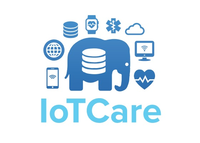TOMOHIRO KURODA, Kyoto University Hospital, Japan
CIO of Kyoto University Hospital and Professor of Medical Informatics in Graduate School of Medicine and Graduate School of Informatics of Kyoto University.
Dr. Tomohiro Kuorda is the CIO (the director of division of medical information technology and administration planning) of Kyoto University Hospital, and the professor of medical informatics in graduate school of medicine and graduate school of informatics of Kyoto University. Besides serving as IT manager of healthcare organization for a decade, he has been a researcher of applied informatics, especially mixed reality and ubiquitous computing applications for medicine and welfare, since he received Ph.D. in information science from Nara institute of science and technology (NAIST), Japan in 1998.
He is a councilor of Japanese Association of Medical Informatics (JAMI) and Japanese Society for Medical and Biological Engineering (JSMBE), a board member of the institute of systems, control and information engineers (ISCIE), a auditor of the Japanese society of sign language studies (JASL), and the chief editor of the Japanese Journal of Medical Virtual Reality (JJMVR). He also belongs to IEEE, the International Society for Virtual Rehabilitation (ISVR), the Human Interface Society of Japan (HISJ), the Virtual Reality Society of Japan (VRSJ) and others.
Title of his speech: "Social Hospital: How IoT changes medicine"
Modern advancement of information and communication technologies (ICT) enables various innumerous sensors scattered or embedded to the daily environment to communicate existing information systems. This innovation called Internet of Things (IoT), Industry 5.0 or originally called Ubiquitous Computing is expected to bring disruptive change on clinical medicine and medical sciences. In this talk, I try to illustrate medicine in the coming information age, where all the healthcare services are embedded to the daily living environment, namely social hospital, and its indications found in Kyoto University Hospital and in Japan






































